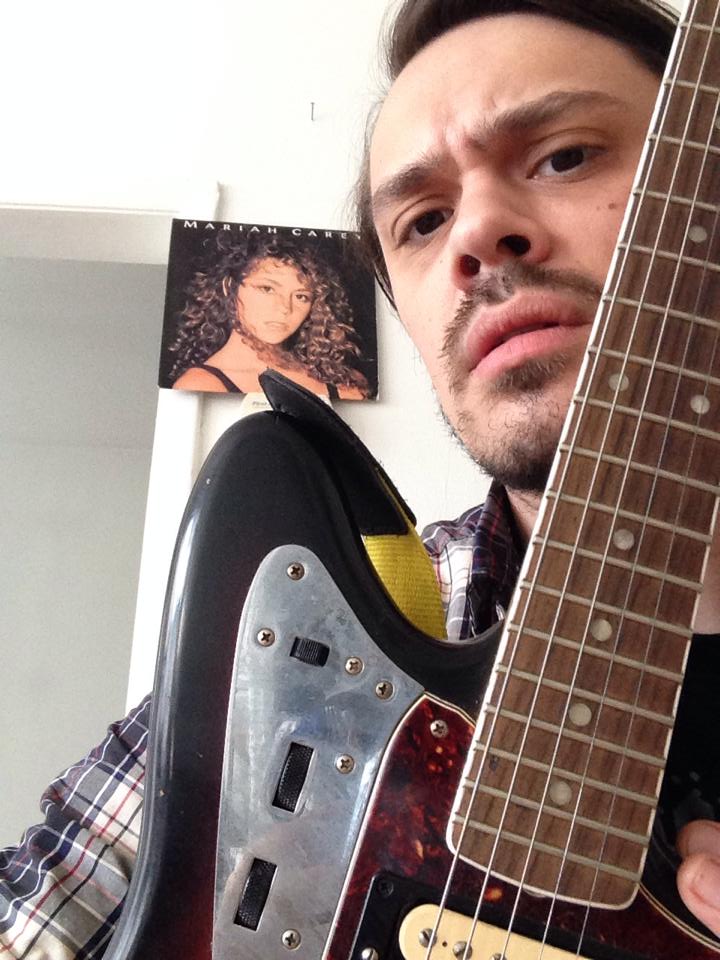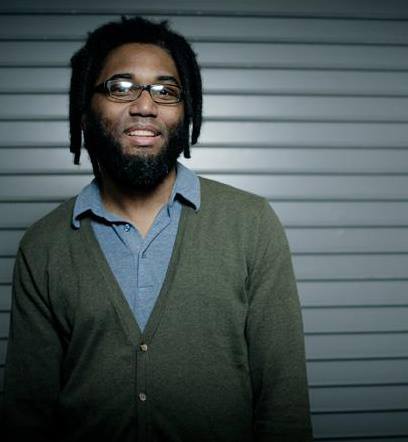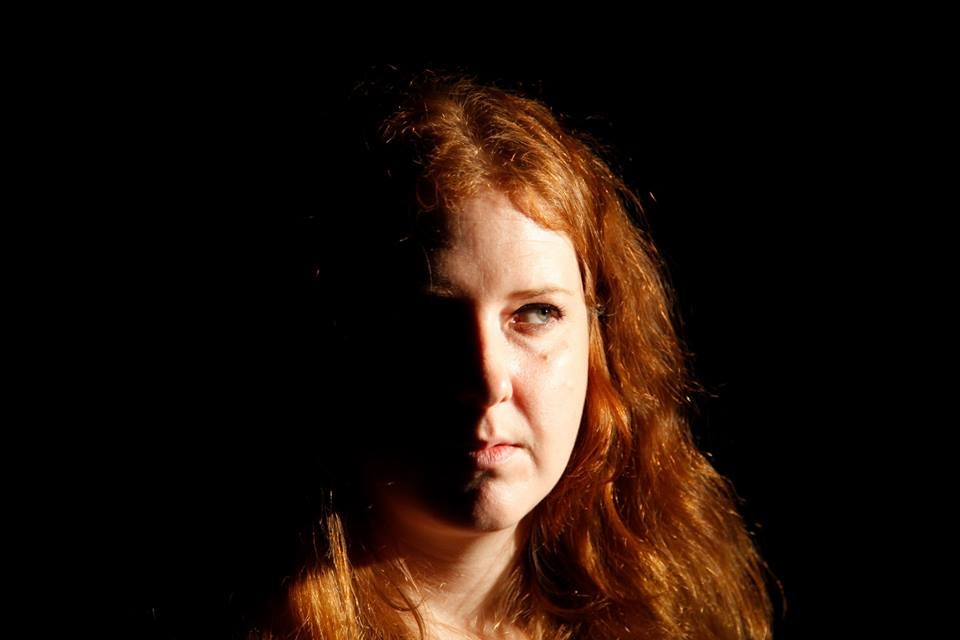Now Playing
Current DJ: Wags
Eleanor Jawurlngali Sinner Man from Eleanor Jawurlngali EP (self-released) Add to Collection
Requests? 773-DJ-SONGS or .(JavaScript must be enabled to view this email address)
 James Deia of Blasted Diplomats will perform a solo set as part of Homeroom Chicago's Songwriter Showcase. Playing music since high school and a native of Chicago, Deia brings blue-collar rock and roll to life. Head down to Uncommon Ground and check him out this Friday, October 10. In the meantime, here's some Q&A between James Deia and Billie Howard.
James Deia of Blasted Diplomats will perform a solo set as part of Homeroom Chicago's Songwriter Showcase. Playing music since high school and a native of Chicago, Deia brings blue-collar rock and roll to life. Head down to Uncommon Ground and check him out this Friday, October 10. In the meantime, here's some Q&A between James Deia and Billie Howard.
1. How did you begin writing songs?
I'd always write riffs on guitar or piano when I was young and would scribble lyrics on napkins or trapper keepers. I had high school bands that never made it out of the basement but shortly before Blasted Diplomats began I was concentrating on completing actual 'songs'. It was nice timing when we started because I had a ton of songs sitting around.
2. How has being in a band (Blasted Diplomats) with other talented songwriters changed your own songs?
We're lucky because we all contribute songs so there's never a shortage of material. If I think something I'm working on is undercooked, someone else can suggest an idea. Then I'll do the opposite of that idea or something. But really, every songwriter should have a sounding board.
 It's practically the eve of Pink Avalanche's The Luminous Heart of Nowhere release (November 18) and the Homeroom Chicago Songwriter Showcase is featuring the group's guitarist/vocalist, Che Arthur. Staying true to Midwestern roots means slipping in for a listen, folks. He'll be at Uncommon Ground this Friday, October 10. Here's a quick chat with Che Arthur done by Billie Howard.
It's practically the eve of Pink Avalanche's The Luminous Heart of Nowhere release (November 18) and the Homeroom Chicago Songwriter Showcase is featuring the group's guitarist/vocalist, Che Arthur. Staying true to Midwestern roots means slipping in for a listen, folks. He'll be at Uncommon Ground this Friday, October 10. Here's a quick chat with Che Arthur done by Billie Howard.
1. Who were some of your earliest musical influences?
In the early 80s, when I started playing guitar as a 12 year old, I’d say my influences were probably the pop of the time - Prince, etc. My guitar teacher at the time would show me songs by Van Halen, Led Zeppelin, and other classic hard rock stuff, and I’d say by 13 or 14 that stuff was influential for me. Then around the same time (ages 12-14) I was discovering punk, which eventually became a bigger influence on my writing (and my life) than all of the other stuff.
2. How has your songwriting changed over the years?
It used to be words first. I used to always carry a notebook around with me, and I’d fill it with whatever thoughts/lines/ideas crossed my mind. I’d then pick from that stuff after writing music, finding lines that fit the mood of the music I’d come up with. Now it’s very much the opposite. Now I typically come up with a bunch of music, then as that stuff takes shape I sit with it and think of lyrics. Sometimes I’ll have a few lines floating around in a notebook somewhere and i’ll build from there, but it almost always comes after the music’s written. Now, with the most recent Pink Avalanche record, I’d say probably only a third of those songs had lyrics when we got to the studio to record them.
 Maigin Blank of Whales, is part of the Homeroom Chicago Songwriter Showcase this Friday, October 10. It's easy to fall away in the sophisticated rock, heavenly pop, sound of Maigin Blank's vocals. The event is at Uncommon Ground (3800 N Clark St). Get an inside scoop on Maigin Blank here at CHIRP Radio! Interview done by Billie Howard.
Maigin Blank of Whales, is part of the Homeroom Chicago Songwriter Showcase this Friday, October 10. It's easy to fall away in the sophisticated rock, heavenly pop, sound of Maigin Blank's vocals. The event is at Uncommon Ground (3800 N Clark St). Get an inside scoop on Maigin Blank here at CHIRP Radio! Interview done by Billie Howard.
1. Who are some of your earliest musical influences?
Around 7 or 9 years of age, I was influenced by very awful pop music of the likes of Debbie Gibson and Madonna, etc. The only cool thing that I can remember is that I was also into Julee Cruise after seeing her on Twin Peaks (television show), when my sister or dad would be watching it (I couldn't figure out what was going on though.) I even traded my sister for her copy of "Twin Peaks soundtrack" on cassette, mainly to listen to "Into the Night" and "The Nightingale". It wasn't until my formative pre-teen years when I finally got into the "better side" of music. My family lived in New Zealand at the time and it was the early 90's, so "independent" music was accessible and much more appreciated.
2. How has your songwriting changed over the years?
I used to be very fixated on writing "honest" lyrics, and that the lyrics had to drive the song. I think now it really is all about having a catchy and interesting melody. If you have that, you can have any kind of lyric you want.
CHIRP's fall fundraising drive is in the books, and it was a great, humbling success. It also got us thinking about the music world's greatest fundraising weapon: the charity single. In the spirit of pop philanthropy, I went back into the archives to answer an age-old question: has there ever been a charity single that didn't suck?
1) Artists United Against Apartheid - "Sun City" (1985)
Benefits: Anti-apartheid charities
Organized by: Steven Van Zandt
Notable Acts Represented: Miles Davis, Bob Dylan, Bruce Springsteen & Little Steven, Gil-Scott Heron, Joey Ramone, Lou Reed, Peter Gabriel, Ringo Starr, Keith Richards & Ron Wood, Run-DMC, Afrika Bambaataa, Kurtis Blow, Grandmaster Melle Mel, Jimmy Cliff, George Clinton, Bonnie Raitt, Darlene Love
Why It Doesn't Suck: The subject matter. Most charity singles are used solely as fundraisers, following the well-meaning (but sometimes misguided) Western tendency to throw money at a problem until it goes away. "Sun City" did that, too, raising millions for anti-apartheid charities upon its release in 1985. However, Artists United Against Apartheid took their commitment a step further. In addition to singing on the record, every artist involved took a pledge not to play Sun City, the infamous whites-only resort that became an emblem of South African inequality. The song was a form of self-policing, calling out both the horrors of aparthied and the tacit approval of those horrors given by artists (including Elton John and Queen) who chose to accept gigs at the resort.
He’s the man who wrote “Smokin’ in the Boys Room” and made unlikely rock stars out of Brownsville Station, a proto-garage rock band of the ’70s. He later went on to become a real student of the blues, writing many important pieces about American music history. Cub Koda is a real unsung hero of rock, and the bespectacled rocker managed to pen some other cool tunes, including the great “Kings of the Party”. There is nothing Cub would appreciate more than having everyone grab their iPod or MP3 player, hit shuffle and share the first 10 tunes that come up.